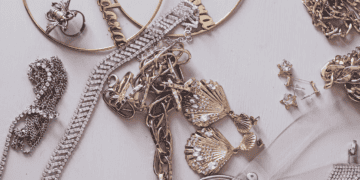In the world of luxury consumption, a subtle shift towards “quiet luxury” or “stealth wealth” is gaining prominence. Wealthy individuals with a deep understanding of luxury products are increasingly opting for understated, logo-less high-end fashion items instead of flashy, logo-centric apparel. This trend arises from concerns that conspicuous consumption of luxury goods can lead to judgments of inauthenticity and status-seeking behavior. But is there a way for luxury consumers to proudly embrace their purchases without suffering negative social consequences?
A recent study, published in the Journal of Consumer Psychology, suggests that openly expressing a passion for luxury products or brands can help individuals mitigate the social costs of luxury consumption while still enjoying the associated benefits. This approach allows consumers to appear more authentic, warm, and trustworthy while benefiting from the elevated status that luxury items offer.
The research found that many luxury consumers are passionate about luxury products or brands but often choose to conceal this passion, fearing negative judgments from peers and colleagues. Some individuals work in industries where luxury consumption is frowned upon, while others worry about being perceived as snobby or materialistic by friends who view their consumption as excessive.
A series of experiments were conducted to determine the effects of publicly expressing a passion for luxury. Participants were presented with scenarios in which a luxury consumer either did or did not reveal their passion for a luxury brand or product. The findings showed that luxury consumers who disclosed their passion were perceived as more authentic, warm, and trustworthy while still benefiting from the status boost associated with luxury consumption. Participants also expressed greater interest in getting to know these consumers.
Moreover, luxury consumers who openly expressed their passion were seen as pursuing luxury for intrinsic motivations, such as genuine enjoyment and appreciation of fine craftsmanship, rather than for extrinsic benefits.
This research has several implications for both consumers and luxury brands. It provides a simple solution for alleviating the negative social consequences of luxury consumption: expressing a passion for the product or brand. This behavior fosters positive interpersonal outcomes without undermining the status benefits of luxury consumption.
For luxury brands, particularly during economic downturns, emphasizing the passion and craftsmanship behind their products can be more effective than overtly promoting the high price tag. Encouraging customers to share their passion for the brand and its products through content creation and social media engagement can help build stronger connections between brands and their customers.
By focusing on craftsmanship, heritage, and the intrinsic virtues of their products, luxury labels can create a win-win scenario. They can promote their products and encourage better engagement with their target audience, while luxury consumers can mitigate the negative social effects associated with conspicuous luxury consumption.
Stay on top of supply chain news with The Supply Chain Report. Enhance your international trade knowledge with free tools from ADAMftd.com.
#QuietLuxury #StealthWealth #LuxuryConsumption #AuthenticLuxury #PassionForLuxury #LuxuryBrands #CraftsmanshipMatters #UnderstatedElegance #LuxuryInStyle #ConspicuousConsumption #StatusWithoutFlash #AuthenticityInLuxury #LuxuryPsychology #ConsumerBehavior #HighEndFashion #LuxuryInsights #BrandPassion #IntrinsicMotivation #LuxuryResearch #LuxuryWithoutLabels #EconomicLuxury
















